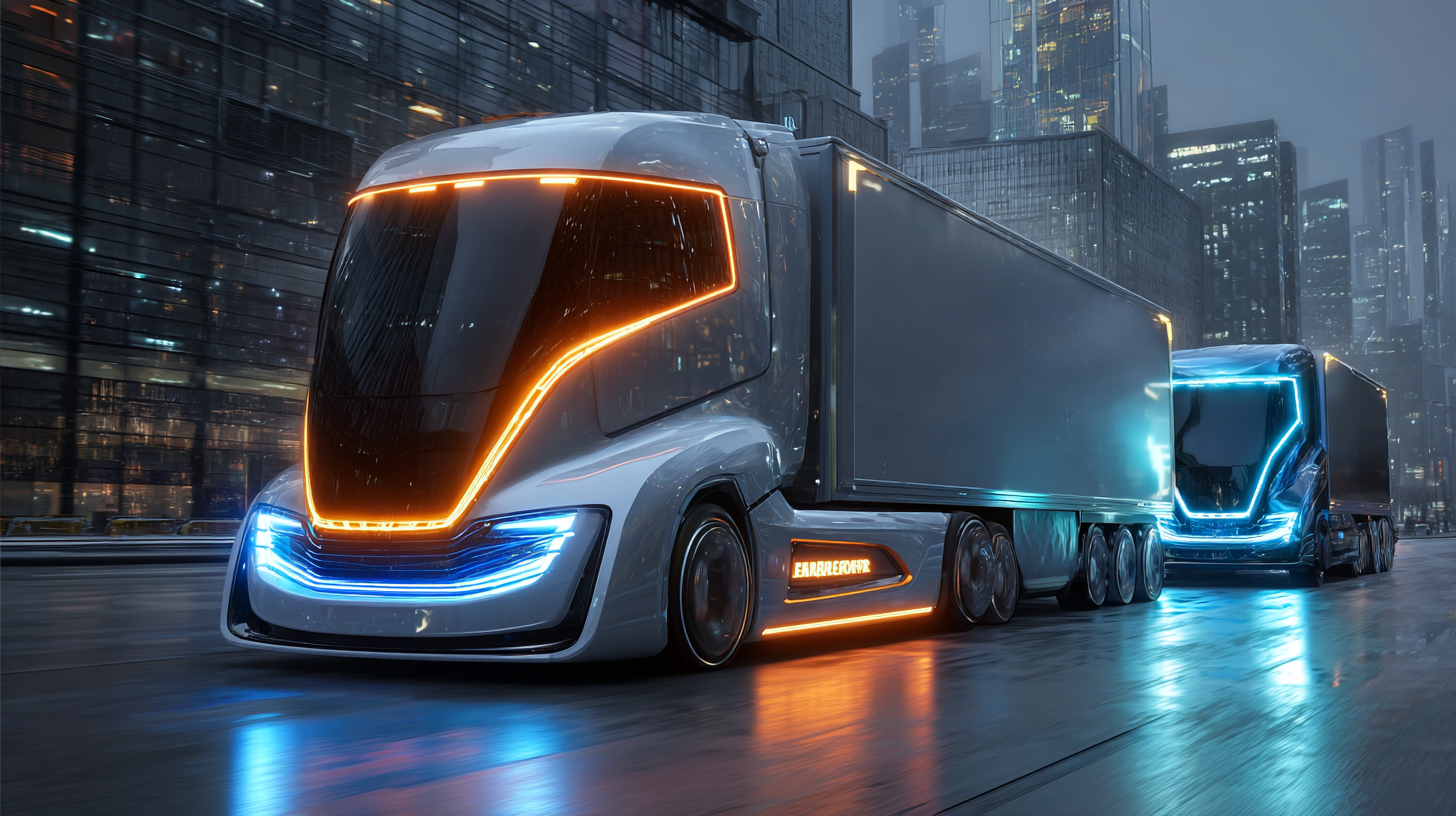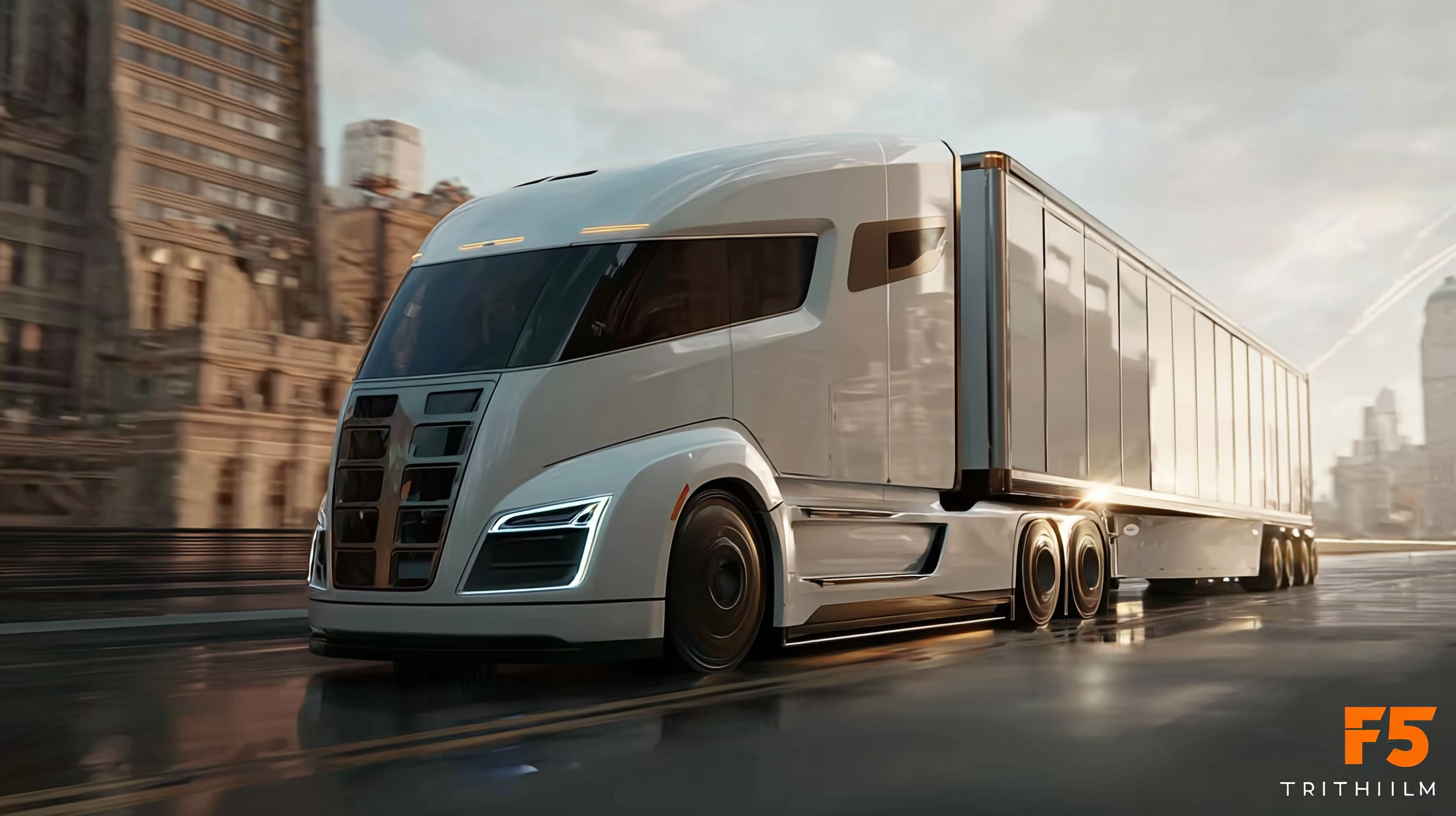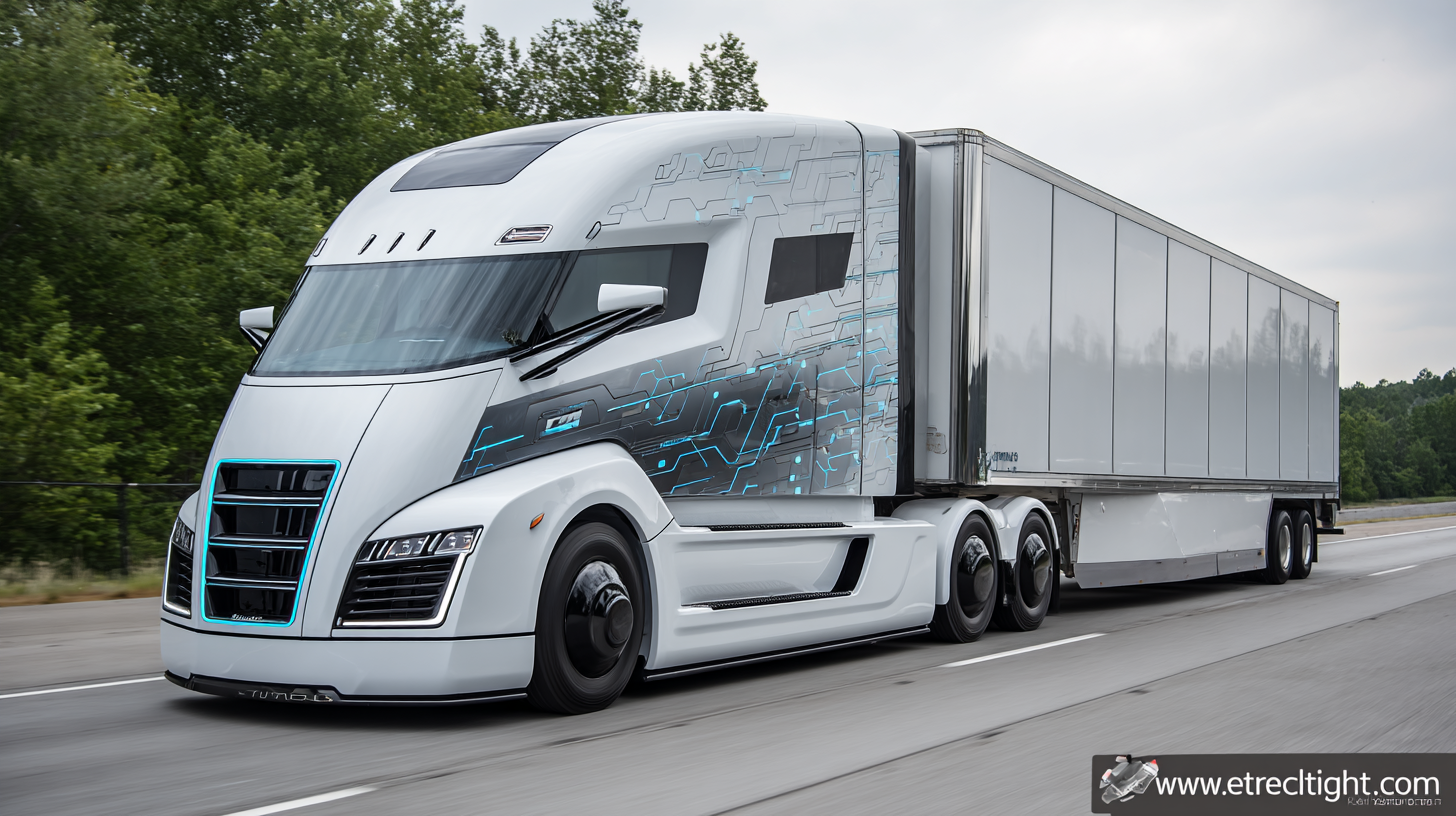Sorry. We did not find anything.
Future Innovations in Best Electric Trucks Post 2025 Analysis of Emerging Technologies
As the global automotive industry shifts towards sustainability, Electric Trucks are poised to redefine commercial transportation beyond 2025. According to a recent report by MarketsandMarkets, the electric truck market is expected to grow from $2.2 billion in 2020 to over $21 billion by 2030, showcasing a compound annual growth rate (CAGR) of around 26.8%. This transformation emphasizes the need for innovative technologies and services that can enhance the ownership experience of electric trucks. Key considerations such as after-sales service advantages and maintenance costs have become crucial for fleet operators. With new advancements in battery technology, telematics, and charging infrastructure, operators will not only benefit from reduced operational costs but also improved service efficiency. This blog will delve into the emerging technologies steering the future of electric trucks, focusing on how they impact after-sales support and maintenance strategies, guiding stakeholders on best practices for optimizing their investments in this dynamic sector.

Future Demand Patterns for Electric Trucks in Global Markets Post-2025
As the global automotive landscape continues to evolve, the demand for electric trucks is projected to surge significantly post-2025. According to a report by BloombergNEF, the electric commercial vehicle market is expected to reach 1.5 million units by 2030, fueled by advancements in battery technology and a growing emphasis on sustainability across industries. Companies are increasingly shifting their fleets towards electric solutions, reflecting a broader trend toward carbon neutrality.
Market dynamics show that North America and Europe will be the primary drivers of this growth, with electric trucks projected to capture about 40% of the market share in the heavy-duty segment by 2030. The rise in consumer demand for cleaner logistics and enhanced governmental regulations regarding emissions are key factors behind this shift. Additionally, innovations in charging infrastructure, including ultra-fast charging stations, will play a crucial role in supporting the operation of electric trucks in urban and rural settings alike. As these trends take hold, stakeholders in the electric vehicle ecosystem must be prepared to adapt to the changing landscapes of global demand patterns.

Key Innovations Driving Efficiency in Electric Truck Manufacturing Facilities
The future of electric truck manufacturing is poised for remarkable evolution, primarily driven by innovative technologies that enhance efficiency within production facilities. As manufacturers strive to meet the growing demand for environmentally friendly transportation solutions, the focus has shifted towards automation and advanced robotics. These technologies streamline assembly processes, reduce human error, and significantly decrease production time, allowing companies to scale operations more effectively.
Additionally, the integration of artificial intelligence (AI) is transforming how electric trucks are designed and built. AI-driven analytics enable manufacturers to gather real-time data from different stages of production, allowing for quick adjustments and improvements in the assembly line. This data-driven approach not only enhances productivity but also helps in predicting maintenance needs, ensuring machines operate optimally, and reducing downtime.
Moreover, sustainable practices play a vital role in future innovations. The adoption of renewable energy sources to power manufacturing facilities and the use of recycled materials is becoming increasingly common. This not only aligns with the overall mission of reducing carbon footprints but also attracts eco-conscious consumers, paving the way for a more sustainable future in the electric truck industry. As these innovations continue to unfold, the landscape of electric truck manufacturing will become more efficient, sustainable, and technologically advanced, setting the stage for a new era in transportation.
The Role of Battery Technology Advancements in Electric Truck Performance
The future of electric trucks is closely tied to advancements in battery technology, significantly influencing their performance and market viability. As we approach 2025, the electric vehicle battery market is projected to reach $253.3 billion in 2024, soaring to $1.88 trillion by 2032, showcasing a robust annual growth rate of 29.7%. This explosive growth is fueled by ongoing innovations, especially in lithium-sulfur batteries, which promise to enhance energy density and reduce weight, leading to longer ranges and improved efficiency for electric trucks.
Tips: For those interested in sustainable transportation, keeping an eye on battery advancements can offer insights into future driving capabilities. Additionally, consider how government initiatives promoting clean energy are shaping market dynamics and influencing the adoption of electric trucks in various sectors.
The Asia-Pacific region, valued at $16 billion in 2024 for electric commercial vehicle battery packs, is expected to maintain an 11.7% compound annual growth rate through 2034. This growth highlights the critical role of supportive policies and infrastructure development. As logistics and other industries increasingly demand electric trucks, the emphasis on advanced battery technologies will be vital for meeting these evolving transportation needs.
Impact of Regulatory Changes on Electric Truck Adoption and Production
The landscape of electric trucks is poised for significant transformation post-2025, driven largely by evolving regulatory frameworks. The International Energy Agency (IEA) forecasts that stringent emission standards and zero-emission mandates will lead to the electrification of nearly 50% of commercial trucks by 2030. This regulatory push is crucial for manufacturers seeking to comply with increasingly strict emissions targets, with many countries planning to phase out internal combustion engine vehicles entirely by 2040.

Moreover, financial incentives and subsidies are expected to accelerate the adoption of electric trucks. A recent report from Bloomberg New Energy Finance (BNEF) indicates that governments worldwide are investing over $100 billion into clean transportation initiatives, which will directly impact production costs and consumer prices for electric trucks. For instance, the California Air Resources Board (CARB) has implemented a $1.5 billion incentive program to expedite electric truck adoption among fleets, dramatically reshaping market dynamics. As these regulatory changes unfold, they will not only bolster the production of electric trucks but also drive innovation in battery technology and infrastructure, paving the way for a more sustainable transport sector.
Emerging Technologies Shaping the Future of Sustainable Electric Truck Design
The future of sustainable electric truck design is being significantly shaped by emerging technologies that promise to redefine performance and efficiency. One key innovation is the advancement in battery technology, particularly solid-state batteries. These new batteries offer greater energy density, leading to longer ranges and faster charging times. As manufacturers focus on reducing weight and increasing power output, the shift to solid-state technology could revolutionize how electric trucks operate, making them more viable for long-haul transportation.
Moreover, the integration of artificial intelligence and machine learning in electric truck design is another crucial factor. AI can optimize routes in real-time, improving fuel efficiency by analyzing traffic patterns and road conditions. Additionally, smart vehicle systems can enhance safety through advanced driver-assistance systems (ADAS) that not only assist the driver but also predict potential hazards. These technologies will also support vehicle-to-grid (V2G) systems, allowing trucks to interact with energy grids to provide power back during peak demand. As these innovations continue to evolve, the electric truck of the future will not only be more sustainable but also smarter and more efficient than ever before.
Future Innovations in Best Electric Trucks Post 2025
This chart illustrates the impact ratings of various emerging technologies expected to shape the future design of sustainable electric trucks beyond 2025, highlighting key areas like battery efficiency, charging speed, autonomous driving, sustainable materials, and connectivity features.
